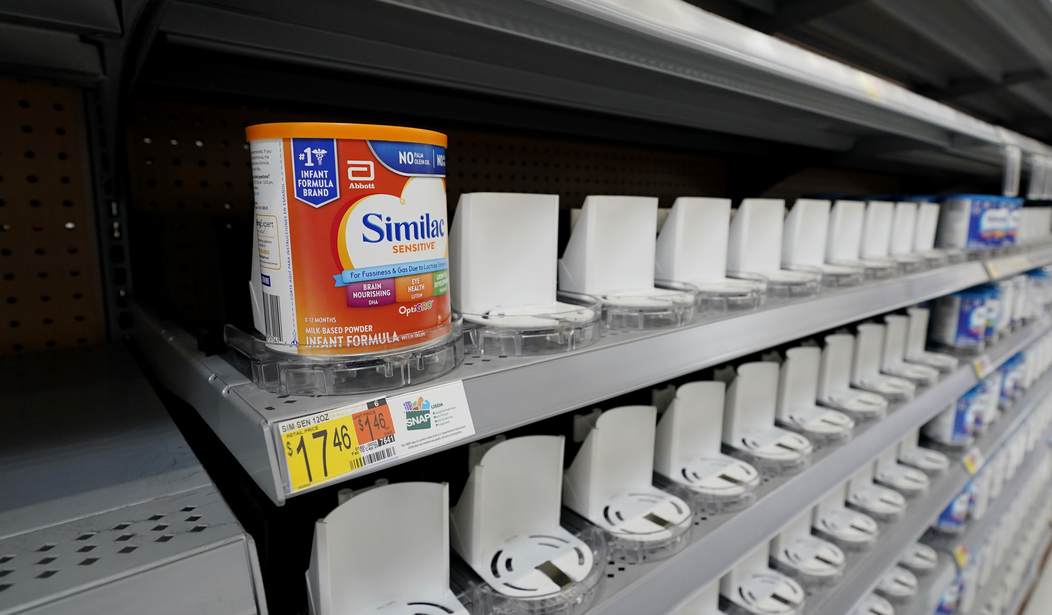Remember the baby formula shortage last year? A major manufacturer of infant formula, Abbott Labs, was forced to close its Michigan plant due to contamination by a deadly bacteria. The factory produced 40% of the nation’s supply of infant formula, including most of the specialty formulas.
This led to massive shortages, empty grocery shelves, and panicked parents who went from store to store looking for food for their babies. To try and make up for the shortages, the Biden administration and Congress cut the tariffs that kept out foreign competition.
The result was soaring imports and an alleviation of the crisis. But on Jan. 1, 2023, the tariffs returned. And now, so have the shortages.
“It’s getting harder and harder” to find baby formula, pharmacy owner Anil Datwani told Fox News this week. “[Mothers] go from one store to the next store to the next store” looking for formula.
Should we really be surprised?
Meanwhile, some consumers are complaining on social media that prices for baby formula have suddenly spiked and availability is once again a problem. A Forbes investigation into a recent increase in the price of Enfamil baby formula noted that the increases “follow the expiration of the U.S. government’s suspension of infant formula tariffs in January, which opened the door for formula (both foreign and U.S.-produced) to become more expensive.” (Another contributing factor: Reckitt Benckiser, the British-based company that owns the Enfamil brand, issued a recall in February affecting about 145,000 cans of formula.)
Because that’s what tariffs do, of course. They are import taxes that protect domestic industries at the expense of domestic consumers, who are subjected to limited supply and higher prices as a trade-off for industrial protectionism.
Where’s the FDA in all of this? The culpability of the FDA in the first infant formula shortage is unquestioned. Now the agency wants to increase “the resiliency of the U.S. infant formula market.”
Meanwhile, on Tuesday, the Food and Drug Administration (FDA) announced new plans to “increase the resiliency of the U.S. infant formula market,” including new regulations, more inspections of manufacturing facilities, and an expedited review process for new products seeking to enter the market. The FDA also promised to examine “other factors that may influence the infant formula supply, such as tariffs and market concentration” but did not promise to take any particular steps in that direction.
The timing is convenient, as current and former FDA officials are being hauled before Congress this week to answer questions about the shortage and the agency’s role in worsening it. The hearings are likely to once again highlight how the FDA’s internal dysfunction led to delays in informing the public about the problems at the Abbott Nutrition plant in Michigan, which was shut down in early 2022 due to contamination, spurring the shortages.
The fact that the FDA has admitted it played a major role in creating the baby formula shortage in the first place but has steadfastly refused to hold anyone at the administration accountable for those mistakes should temper any expectations of positive changes.
In other words, don’t hold your breath for a quick fix for this infant formula shortage.










Join the conversation as a VIP Member